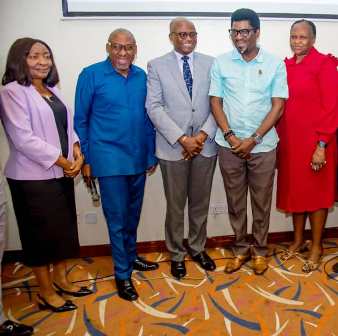The Coalition Against Counterfeit Pharmaceutical Products (CACPP) in conjunction with Nigerian Representatives of Overseas Pharmaceutical Manufacturers (NIROPHARM) and Pfizer is leading the charge in seeking collaborations between relevant stakeholders in the pharmaceutical industry in the fight against counterfeit pharmaceutical products in Nigeria.
CACPP initiated the campaign on Monday when it invited relevant stakeholders in Nigeria to its inaugural forum to discuss the way forward in the fight against Counterfeit Pharmaceutical Products.
The convener, Yomi Badejo-Okusanya, who is also the Group Managing Director, CMC Connect Limited, while speaking on what informed his decision to form the coalition, said it was borne out of the desire to take a firmer stand against the growing problem of counterfeit pharmaceutical products in Nigeria.
According to him, the initiative would be through engagement and advocacy, “with hope to kick off an intense national advocacy campaign against counterfeit pharmaceutical products.”
Also speaking at the occasion, the West Africa Country Manager of Pfizer Mr. Olayinka Subair said: “Counterfeit medicines don’t cure any disease, rather they put patients’ health at risk because of their contents, it ultimately impedes the Nigerian Healthcare System. Lives are lost and medical conditions worsened due to this cankerworm. It is not an individual’s battle; it requires collective effort.”
He urged Nigerians to champion the anti-counterfeit cause, especially as regards healthcare, stressing the need to join hands together “because there is no shortcut with health.
“Due process must be followed to get the best results,” he said.
According to him, unlike other commodities, fake drugs are life-threatening thus, patients should only buy prescribed medicines from accredited pharmacies and not quacks or roadside vendors.
Similarly, NIROPHARM President Mr. Femi Soremekun, said: “In recent years, the fight against counterfeit pharmaceutical products has taken new dimensions due to the global influx of counterfeiting syndicates, it is like a race against time for pharmaceutical companies – the cost to our collective health and economies is enormous.
“Over the years, pharmaceutical companies are perplexed as to how best to nip the challenges in the bud. The challenges are overwhelming owing to the sophistication of the activities of counterfeiters.“
Soremekun described the fight against counterfeit pharmaceutical products as a herculean task which requires strong collaborations between government agencies and key stakeholders because of the impact.
“For most African Nations, combating counterfeit pharmaceutical products is even more challenging due to the lack of synergy between key stakeholders in the pharmaceutical industry and government agencies.
“Stakeholders must look beyond the surface which is most times in-ward – they must look at the root cause which in most cases boils down to (Identity) or patent, what marks counterfeit from original pharmaceutical products.
“The Organization for Economic Co-operation and Development (OECD) and the European Union Intellectual Property Office (EUIPO) in a recent study titled ‘Trade in Counterfeit Pharmaceutical Products’ opined that “The consequences for the economy and for citizens are serious.’”
“Trade in counterfeit goods not only damages economic growth but also undermines good governance, the rule of law and citizens’ trust in government, and can ultimately threaten political stability. In addition, in some cases, such as that of fake pharmaceuticals, counterfeit goods can have serious health and safety implications for citizens,” he added.

L-R: Director, Pharmaceutical Council of Nigeria (PCN), Lagos Zonal Office, Dr. Ukamaka Okafor; Group Managing Director, CMC Connect Limited, Yomi Badejo-Okusanya; West Africa Country Manager, Pfizer, Mr. Olayinka Subair; Nollywood Actor and Film Producer, Ayo Badmus; Deputy Director, Federal Task Force on Counterfeit Substandard Regulated Products Investigation and Enforcement – NAFDAC, Pharm. Uba Florence; National Treasurer, Pharmaceutical Society of Nigeria, Pharm. Gafar Lanre Madehin; President, Nigerian Representatives of Overseas Pharmaceutical Manufacturers (Niropharm), Femi Soremekun and Country Manager -Nigeria, Astrazeneca, Morris Nyarko at the event.

